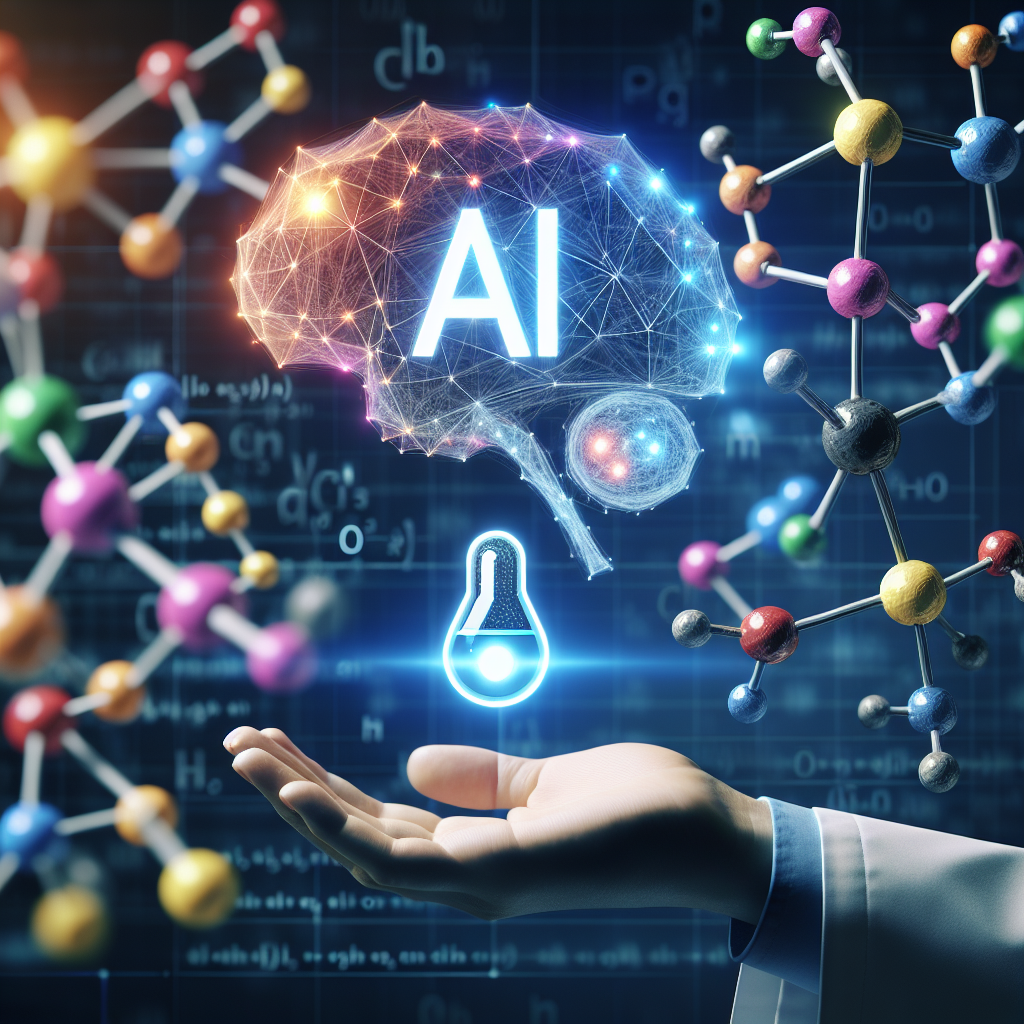The Potential of AI in Drug Discovery
Artificial Intelligence (AI) has revolutionized many industries, and drug discovery is no exception. The use of AI in drug discovery has the potential to greatly accelerate the process of developing new drugs, making it faster, more efficient, and cost-effective. In this article, we will explore the potential of AI in drug discovery and how it is already being used to revolutionize the pharmaceutical industry.
AI in Drug Discovery: How it Works
AI algorithms are able to analyze vast amounts of data far more quickly and accurately than humans, making them ideal for drug discovery. One of the main ways in which AI is used in drug discovery is in the virtual screening of potential drug candidates. By analyzing large databases of chemical compounds and predicting their properties, AI algorithms can identify potential drug candidates much faster than traditional methods.
In addition, AI is also being used to predict the effectiveness of drugs in treating specific diseases. By analyzing data from clinical trials, AI algorithms can identify patterns and correlations that may not be obvious to human researchers, leading to new insights into the efficacy of different drugs.
Another area in which AI is being used in drug discovery is in the design of new drugs. By analyzing the structure of proteins and other molecules, AI algorithms can predict how different compounds will interact with these molecules, allowing researchers to design new drugs with specific properties.
Overall, the use of AI in drug discovery has the potential to greatly accelerate the process of developing new drugs, leading to faster and more effective treatments for a wide range of diseases.
Current Applications of AI in Drug Discovery
AI is already being used in a number of ways in drug discovery. One of the most common applications of AI in drug discovery is in the virtual screening of potential drug candidates. By analyzing large databases of chemical compounds and predicting their properties, AI algorithms can identify potential drug candidates much faster than traditional methods.
In addition, AI is also being used to predict the effectiveness of drugs in treating specific diseases. By analyzing data from clinical trials, AI algorithms can identify patterns and correlations that may not be obvious to human researchers, leading to new insights into the efficacy of different drugs.
AI is also being used in the design of new drugs. By analyzing the structure of proteins and other molecules, AI algorithms can predict how different compounds will interact with these molecules, allowing researchers to design new drugs with specific properties.
Overall, the use of AI in drug discovery has the potential to greatly accelerate the process of developing new drugs, leading to faster and more effective treatments for a wide range of diseases.
Challenges and Limitations of AI in Drug Discovery
While AI has the potential to revolutionize drug discovery, there are also challenges and limitations that need to be addressed. One of the main challenges is the need for high-quality data. AI algorithms are only as good as the data they are trained on, so it is essential to have access to large, high-quality datasets in order to get accurate and reliable results.
Another challenge is the interpretability of AI algorithms. While AI algorithms can analyze vast amounts of data and identify patterns that may not be obvious to human researchers, it can be difficult to understand how these algorithms arrive at their conclusions. This lack of transparency can be a barrier to the adoption of AI in drug discovery.
Finally, there are also ethical and regulatory considerations that need to be taken into account when using AI in drug discovery. For example, there are concerns about the potential for bias in AI algorithms, as well as issues around data privacy and consent.
Despite these challenges, the potential of AI in drug discovery is immense, and researchers are working hard to overcome these obstacles in order to harness the full power of AI in the development of new drugs.
FAQs
Q: How is AI being used in drug discovery?
A: AI is being used in drug discovery in a number of ways, including virtual screening of potential drug candidates, predicting the effectiveness of drugs in treating specific diseases, and designing new drugs.
Q: What are the challenges of using AI in drug discovery?
A: Some of the challenges of using AI in drug discovery include the need for high-quality data, the interpretability of AI algorithms, and ethical and regulatory considerations.
Q: What are the potential benefits of using AI in drug discovery?
A: The potential benefits of using AI in drug discovery include faster and more efficient drug development, leading to faster and more effective treatments for a wide range of diseases.
Q: How can researchers overcome the challenges of using AI in drug discovery?
A: Researchers can overcome the challenges of using AI in drug discovery by ensuring access to high-quality data, working to improve the interpretability of AI algorithms, and addressing ethical and regulatory considerations.
In conclusion, the potential of AI in drug discovery is immense, and researchers are already making great strides in harnessing the power of AI to develop new and more effective treatments for a wide range of diseases. By overcoming the challenges and limitations of AI, we can look forward to a future where drug discovery is faster, more efficient, and more cost-effective than ever before.

